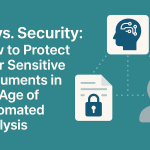The recent lawsuit against Adobe, as reported by the BBC, underscores the critical issue of transparency in SaaS (Software as a Service) subscription models. The US government, through the Federal Trade Commission (FTC), has accused Adobe of implementing “hidden” termination fees and creating a convoluted cancellation process that traps customers into year-long subscriptions without clear disclosure.
According to the FTC’s complaint, Adobe’s practices include not adequately informing customers about the long-term commitment they are making and the substantial fees for early cancellation. Additionally, the process to cancel subscriptions is criticized for being overly complicated, requiring multiple steps and password re-entries, which often leaves customers frustrated and still being charged even after attempting to cancel.
Adobe, on the other hand, disputes these claims. Dana Rao, Adobe’s General Counsel and Chief Trust Officer, asserts that Adobe is transparent about its subscription terms and maintains a simple cancellation process. The company plans to challenge the FTC’s allegations in court.
This situation highlights a broader issue within the SaaS industry where customers frequently face unclear terms and challenging cancellation procedures. It raises questions about the ethics and legality of such business practices. Especially when they result in financial burdens for unsuspecting consumers.
SaaS Pricing Practices
SaaS pricing practices vary widely across the industry, but transparency and flexibility are often lacking. Many companies use subscription models that require long-term commitments, which can be problematic if not clearly communicated to the customer. These models might include monthly or annual fees, often with discounts for longer commitments. However, the cancellation policies can be complex. They often involve hidden fees or complicated processes to deter customers from ending their subscriptions early. This can lead to dissatisfaction and legal challenges, as seen in Adobe’s case.
Why MyDocSafe is Different
In contrast to the practices described in the Adobe lawsuit, MyDocSafe stands out in the SaaS industry for its commitment to transparency and user-friendly policies. Here’s how MyDocSafe differentiates itself:
- Clear Subscription Terms: MyDocSafe provides clear and upfront information about subscription lengths and associated costs. Customers are fully aware of what they are signing up for, including any fees for early termination. In a nutshell, the company offers monthly or annual billing. Premium features, which are based on transaction volume are charged monthly in arrears for whatever was used.
- Simple Cancellation Process: Unlike Adobe’s criticized cancellation hurdles, MyDocSafe ensures a straightforward process for customers who wish to cancel their subscriptions. The goal is to provide a hassle-free experience, respecting the customer’s decision without unnecessary obstacles.
- Flexible Options: MyDocSafe offers flexible subscription plans tailored to various business needs, allowing customers to choose plans that best suit their requirements without feeling trapped in long-term commitments.
- Customer-Centric Approach: MyDocSafe values customer trust and satisfaction. By prioritizing transparency and simplicity, the company aims to build long-term relationships based on trust rather than on locking customers into complex and opaque agreements.
As the SaaS industry continues to grow, the emphasis on ethical business practices and customer-friendly policies will be crucial. Companies like MyDocSafe, which prioritize transparency and ease of use, hope to set a positive example for the industry. Indeed, they want to demonstrating that success can be achieved without compromising customer trust.
For further details on the Adobe lawsuit, you can refer to the original BBC article.




